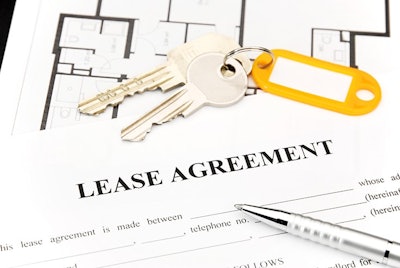
Stephanie Smith, a long-time California property owner, has been leasing property to the southern California cannabis industry since 2009, after being pleasantly surprised at the cannabis bidding war that ensued on one of her warehouse listings she thought was best-suited for a laundromat.
“Within about 45 minutes, I had someone who wanted to lease it for cannabis, and then more and more people wanted to lease for cannabis and there began a bidding war for cannabis for that property,” Smith says. “I learned a very quick lesson on what market rates would be and how much interest there was.”
Now, Smith manages 50 cannabis properties and repurposes industrial spaces for processing, manufacturing and extraction, not just indoor cultivation.
“I saw it as an opportunity to use real estate with social justice and to be a part of pushing this marijuana issue forward in a way that I felt like would be really effective, that by being that professional landlord and holding tenants responsible for things like insurance and paperwork and legal compliance, that I was helping an industry I really believed in,” Smith says.
The Path to Cannabis Property
In 2009, Smith remembers growers who were bidding would claim they were using the property for all sorts of things, never mentioning cannabis.
“Nobody was really saying what it was for in those days. But once you talk to somebody and you’re clear that you’re open to cannabis, they were really happy to have a landlord that they didn’t need to hide from,” she adds.
When she first started dealing with cannabis tenants, Smith thought she was the only one.
“I thought I was leasing to the only person who grew cannabis in Los Angeles,” she says. “I thought I just had a one-off, odd tenant. I didn’t have an understanding of what was happening in the market, because obviously no one was talking about it.”
But Smith did some research into the market after enjoying the experience of leasing to her first cannabis tenant and began increasing her portfolio from there to include more cannabis-friendly properties. Smith, unlike most other landowners, is not after the biggest dollar sign. Instead, she values the relationships with her tenants and chooses the person she feels would succeed in the space. That has been her motto ever since, she says.
Advancing Her Mission
Selecting the best tenant is not always easy, however, as all too often many growers claim to be the best, Smith says, but she looks for people who are experienced and professional. “I don’t necessarily lease to the people who are offering the most for properties, but to those who are going to be the most successful,” she adds.
And while tenant selection isn’t smooth and breezy, Smith also realizes the challenges for cannabis business owners navigating this burgeoning marketplace.
“[Wholesale prices are] just continuing to fall, and as demand shifts from flower to processed products, it’s very clear to me that this is an agricultural product,” Smith says. “[And so I’m] looking at buildings that are good for cultivation to buildings that are good for processing and then looking at land for outdoor greenhouses and outdoor growers.”
Smith encourages tenants to apply for licenses in cities and counties where cannabis operations are legal once those applications become available. She also requires her tenants to build out to code, even in jurisdictions where the regulations have yet to be been written.
“I look to Colorado for their building codes and really demand that tenants put their scruples in line with what Colorado demands because California’s codes haven’t been written yet—there’s nothing to look to,” she says. “I look for best practices in other states. The build-out is the tenant’s responsibility. I just want to make sure that it’s safe and compliant.”
Smith leases only properties that are already upgraded, safe and secure for cannabis cultivation.
“I know landlords who will lease out a property that doesn’t have sufficient power and then it’s up to the tenant to do that upgrade, but when you’re talking about something that’s as key to the building as its power service, I really need to be in control of that. I want to make sure it’s done in a timely manner,” she says.
Overall, Smith sees leasing to cannabis tenants as a way to advance the industry as a whole.
Top Image: © eccolo | Adobe Stock























